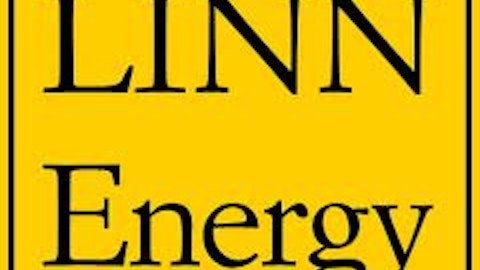
About Linn Energy and Berry Petroleum
Linn Energy is a pure-play oil and natural gas company that primarily develops properties in the western half of the United States. Its principal holdings include tracts in the Permian Basin Royalty Trust (NYSE:PBT), Bakken Shale region, various areas within California, the southern Great Plains, Missouri Highlands, and the northern portion of Lower Michigan. It has nearly 8,000 wells and about 3.4 trillion cubic feet of oil and gas equivalents. Linn Energy LLC (NASDAQ:LINE) employs around 1,150 full-time staff members and lost about $391 million on gross 2012 revenues of $1.7 billion.
Berry Petroleum is a full-service exploration and drilling company that operates a number of proven and producing oil and gas properties in the western United States. Its principal holdings are concentrated in the Permian Basin near Midland, Texas, the shale fields near Bakersfield, Calif., and the Green River Shale in Utah and Colorado. All told, the company has over 3,000 hydrocarbon wells and can point to proven reserves of at least 130 million barrel-equivalents of oil and natural gas. Berry Petroleum Company (NYSE:BRY) earned $171.5 million on gross 2012 revenues of around $978.6 million.
How the Deal Is Structured
Under the terms of the proposed deal, Berry Petroleum shareholders will receive compensation in the form of 1.25 Linn shares for every Berry share that they own. Since these shares will be created for the purposes of the transaction, they will add significantly to Linn’s total float.
At Linn Energy LLC (NASDAQ:LINE)’s current share price of approximately $37.39, this transaction values each Berry share at about $46.74. Relative to Berry’s current share price of $45.63, this represents a premium of approximately 2.4%. Relative to Berry’s pre-announcement share price, the deal offers a premium of roughly 20%. The combined company would have revenues of well over $2 billion. Further, Linn’s management team estimates that the deal could add 40 cents to its per-share earnings figure. The company is also considering a 6% dividend increase that could take effect as soon as the deal is completed.
Complications and Legal Issues
This deal’s successful completion hinges on certain customary closing conditions, including a full shareholder vote and approval from Berry’s board of directors. Given the handsome premium that Linn appears willing to pay for the company, neither of these obstacles is likely to get in the way of the merger’s eventual completion. Although the deal will also be subject to a customary regulatory review by the appropriate U.S. authorities, the modest size of these players makes any intervention unlikely. After all, the U.S. oil and gas industry is competitive enough to absorb a $4 billion merger without suffering any adverse effects.
Long-Term Outlook, Prospects and Competition
The major headline that has emerged from this deal concerns its projected ability to increase the size of Linn’s proven reserves by up to 30%. This will undoubtedly provide Linn with the heft that it needs to compete with other U.S.-based independent oil and gas producers.
Although investors who find companies like Linn attractive also tend to invest in midstream players like Energy Transfer Partners LP (NYSE:ETP) and Martin Midstream Partners L.P. (NASDAQ:MMLP), Linn also competes with structured trusts like Hugoton Royalty Trust (NYSE:HGT) and Permian Basin Royalty Trust (NYSE:PBT). All of these organizations are structured to capitalize on free-flowing North American shale oil and natural gas. With its proposed dividend increase, Linn could soon yield more than 8% and compete on equal footing with the most attractive trusts and cash-returning independents on the market. Hugoton yields about 10% and Permian yields 3.4%. Both of these trusts have PE ratios in the low teens. Indeed, Linn’s market-beating yield offers a compelling investment rationale on its own.
Berry Petroleum Company (NYSE:BRY)’s current holdings will add to the company’s future prospects. Aside from the Bakken play and the Alberta oil sands, the most exciting North American energy prospect probably lies in the Monterrey Shale of California’s Central Valley. While the area has long produced its share of conventional oil and gas, its potential reserves could exceed those of the Bakken by a factor of three. Long-term investors would do well to watch energy-related developments in this part of North America.
In sum, the proposed merger between Linn Energy LLC (NASDAQ:LINE) and Berry Petroleum Company (NYSE:BRY) holds out the promise of a small arbitrage premium as well as an attractive ongoing yield. Should the combined company’s Monterrey Shale holdings begin to bear fruit, it might prove to be a very rewarding investment.
The article Major Move for This Company in the Energy Arena originally appeared on Fool.com. Copyright © 1995 – 2013 The Motley Fool, LLC. All rights reserved. The Motley Fool has a disclosure policy.



